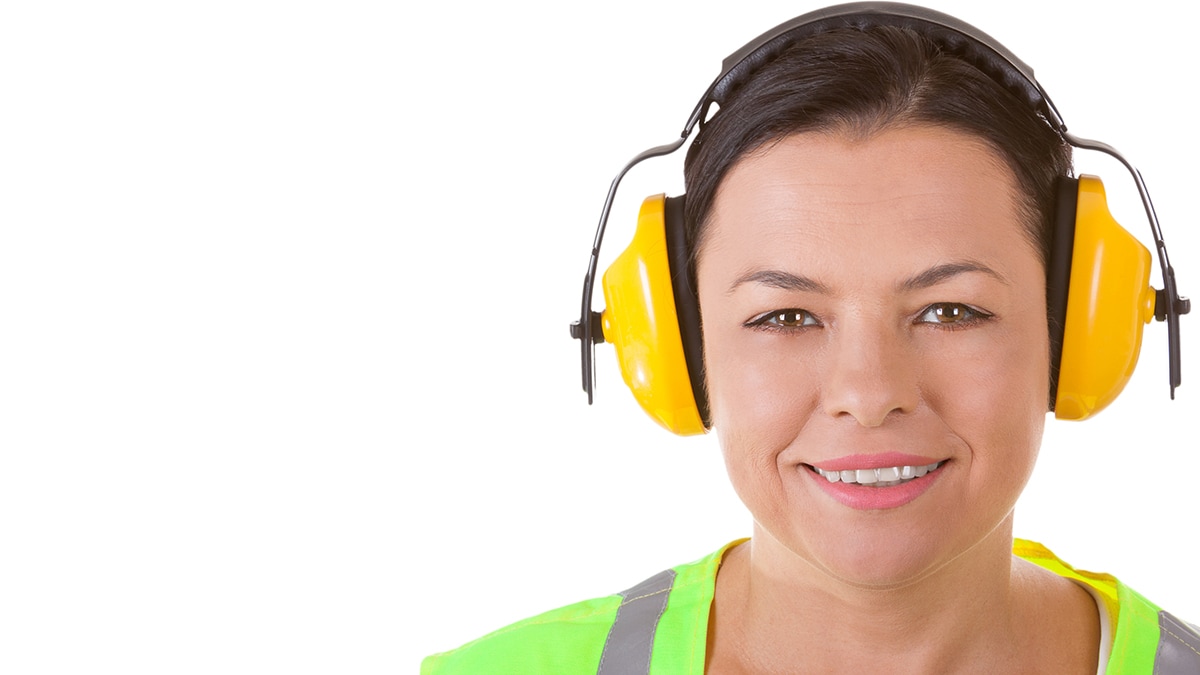Key points
- Working in a noisy job can affect your hearing and harm your health.
- During pregnancy, exposure to very loud noise can increase your chances of having a baby with hearing problems.
- Learn more about noise at work and what you can do to reduce your exposure.

Why I should be concerned about noise

Loud noise can damage a person's hearing and cause stress, which causes changes to the body that can harm health.
Sound can travel through a pregnant woman's body. Very loud noises may be able to damage a developing fetus's hearing. A fetus's ears develop by about the 20th week of pregnancy. Fetuses start responding to sounds around the 24th week.
When noise can become hazardous
For adults, noise that is 85 decibels (dBA) or more is considered hazardous to your hearing. At this noise level, you would have to raise your voice for someone next to you to hear you.
Sounds from outside the body are lower inside the womb, but not completely silenced. Some experts think that women who are pregnant should not be routinely around noise louder than 115 dBA. This is based on what we know about how sound moves through a body. A noise level of 115 dBA is roughly as loud as a chainsaw. Avoid areas that are louder than 115 dBA during pregnancy, even if you are wearing hearing protection.
Who is at risk
Many people work in noisy jobs who may not realize it, especially those who work with:
- Machines
- Guns
- Loud music
- Crowds of people
- Sirens
- Trucks
- Airplanes
What I can do to reduce harmful exposure to noise
For all workers
Use hearing protection (ear plugs or earmuffs) to protect yourself if your job exposes you to loud noise.
Avoid sudden impact or impulse noise loud enough for you to need hearing protection or that startles you.
For pregnant workers
Your hearing protection will not fully protect a developing fetus's ears from noise. Sounds from outside the body are lower inside the womb, but not completely silenced. Avoid areas that are louder than 115 dBA during pregnancy, even if you are wearing hearing protection.
Avoid low frequency sounds (noises you feel as a rumble or vibration). Low-frequency noise travels through your body more easily than high-frequency noise. Low-frequency noise can cause changes that could affect your developing baby.
Do not lean up against a source of noise or vibration. Sounds are stronger for a fetus when your belly is closer to the source of the noise. Move as far away from the source of noise as possible.
Resources
Getting help
You can ask your supervisor or occupational safety officer what the noise level is where you work. If noise is loud in your workplace, talk to your supervisor or occupational safety specialist. You can ask them to help you reduce hazards from a noise during your pregnancy.
For information on the Pregnant Workers Fairness Act, please see resources from the U.S. Equal Employment Opportunity Commission (EEOC) website.
Talk to your doctor about potential hazards at work. Make sure to mention that your job exposes you to loud noise.
Where I can get more information
- Learn more about how to prevent hearing loss.
- Learn more about occupational noise exposure.
- For employers, learn more from OSHA about noise control measures.
